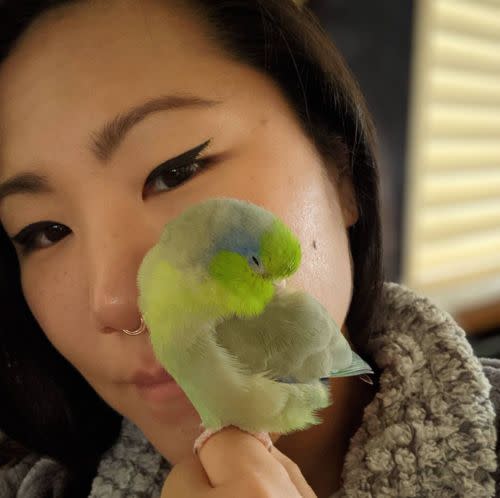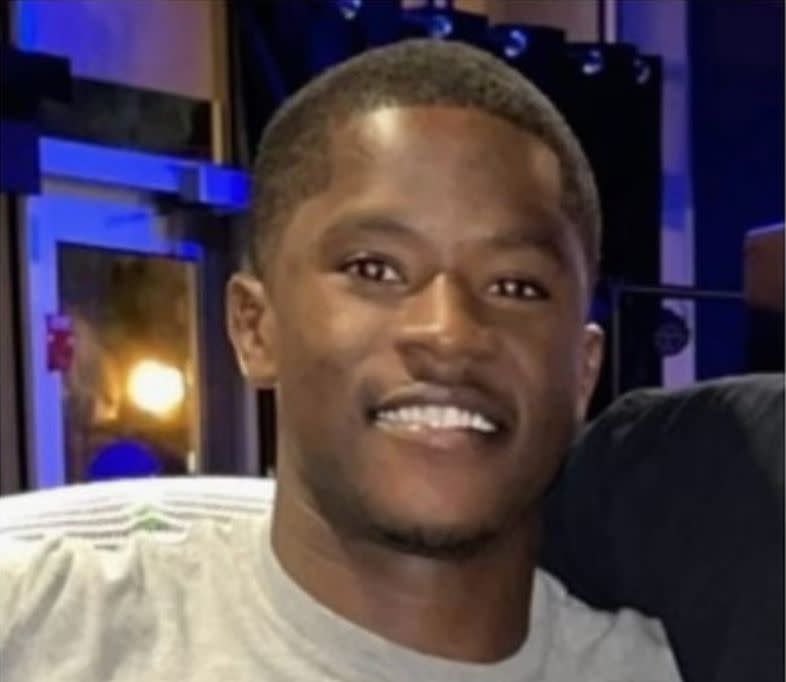Remains Found In California Desert Identified As Missing Woman Lauren Cho
Human remains found earlier this month in a California desert have been identified as missing woman Lauren Cho, the San Bernardino County coroner’s office announced Thursday.
The San Bernardino County Sheriff’s Department discovered Cho’s remains in the rugged terrain of the Yucca Valley on Oct. 9 during an additional search and rescue operation for her near Joshua Tree National Park. The coroner’s office said it is awaiting toxicology results to determine the cause and manner of Cho’s death.
The 30-year-old Korean American from New Jersey, whom friends called “El,” had been missing since the afternoon of June 28, when she reportedly walked away from her friend Tao Ruspoli’s Airbnb property where she had become a private chef. Her friend and ex-boyfriend, Cody Orrell, was also staying on the property and was the last known person to have seen her.
Orrell reported Cho missing about three hours after she disappeared, telling authorities that they had had an argument when she left the Airbnb. Investigators said Orrell had “indicated she was suffering from mental distress,” according to CNN.
Cho’s friends said that she had left her personal belongings at the Airbnb on a day that would have been about 110 degrees.

LaurenCho.com)" data-caption="Lauren Cho holds her parrotlet Porkchop, whom her friends said she didn't like to leave. Authorities identified the 30-year-old's remains in California's Yucca Valley after she went missing on June 28. (Photo: LaurenCho.com)" data-rich-caption="Lauren Cho holds her parrotlet Porkchop, whom her friends said she didn't like to leave. Authorities identified the 30-year-old's remains in California's Yucca Valley after she went missing on June 28. (Photo: LaurenCho.com)" data-credit="LaurenCho.com" data-credit-link-back="https://www.laurencho.com/media" />
“Some are quick to post on social media sites that Lauren was suicidal,” Cho’s friends wrote in a statement on a website they set up for her. “However, suicide by exposure is extremely uncommon due to the length of time it takes for one to succumb to the environment.”
According to her friend’s website, Cho decided to move from New Jersey to the West Coast earlier this year to leave her career as a music teacher and pursue her dream of becoming a chef and running a food truck.
Cho’s disappearance gained widespread attention after social media users began highlighting missing people of color in response to the wall-to-wall news coverage (including by HuffPost) of white YouTuber Gabby Petito’s disappearance and death.
Cho’s disappearance was one of the many missing persons cases elevated in a discussion of “missing white woman syndrome,” which refers to the stark contrast in the media’s coverage of white women versus people ― and particularly, women ― of color.
Lauren Cho went missing under similar-ish circumstances and no one has ever heard her name. i’m happy gabbys case is getting lots of attention, but so should lauren’s. https://t.co/ik7PhJgN3k
— lynds (@lyndswilli) September 19, 2021
“We would like to take a moment to acknowledge the messages and questions that have come our way this past week regarding the Gabby Petito case in comparison to what is happening with El,” Cho’s family posted Sept. 18 to their Facebook page for Cho. “We realize that on the surface, the public information for both cases share some similarities.”
“We understand the frustration many of you have expressed about how and why certain cases receive national coverage,” the post continued. “Ultimately, these two cases are NOT the same and the differences run deeper than what meets the public eye.”
Asians and Asian Americans often face unequal news visibility, University of Utah communications professor Kent Ono told The Associated Press. The “model minority myth” that Asians are uniformly successful and therefore don’t experience difficulties contributes to that problem.
“That then makes it very hard for readers and viewers to imagine that Asian and Asian American people have any problems at all that they can’t take care of by themselves,” Ono said.
Cho’s family posted on Facebook a link to the coroner’s release identifying her but did not include a statement.
This article originally appeared on HuffPost and has been updated.




